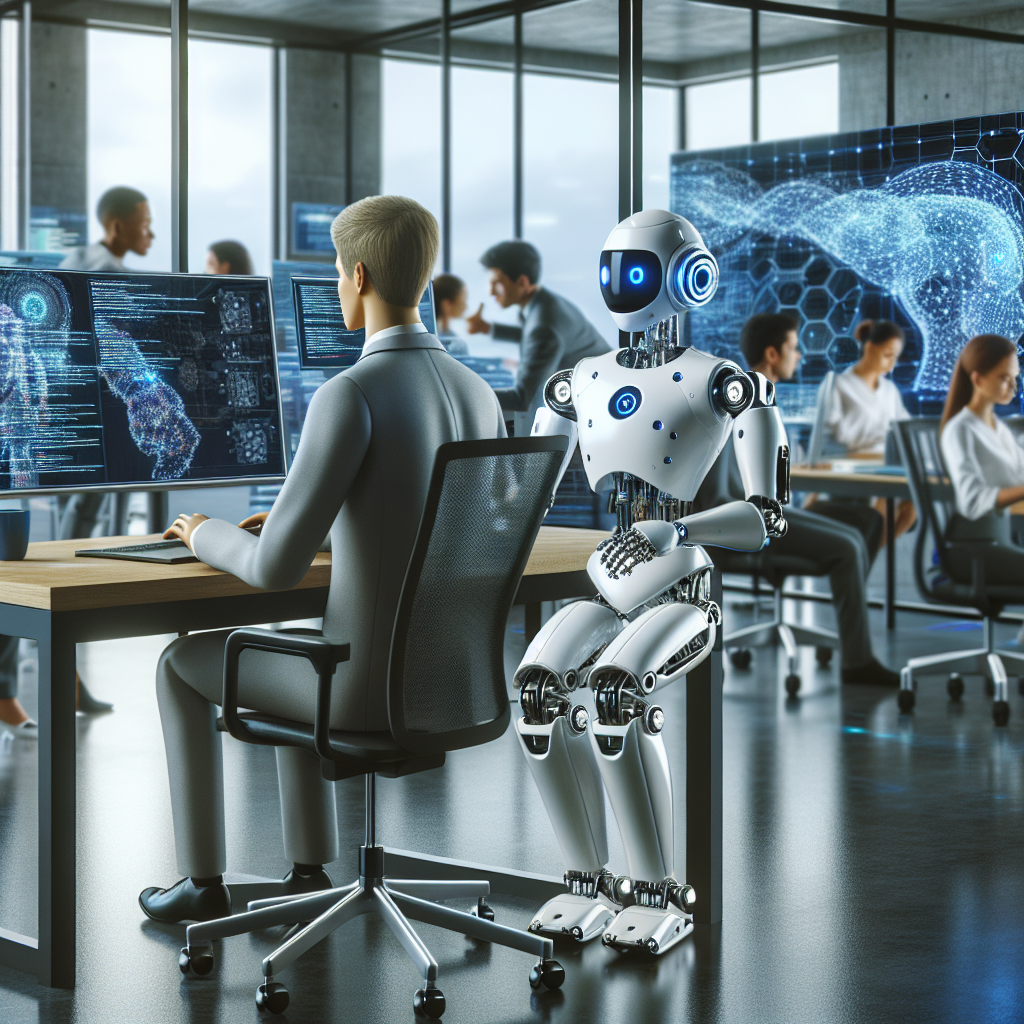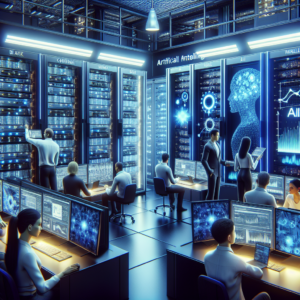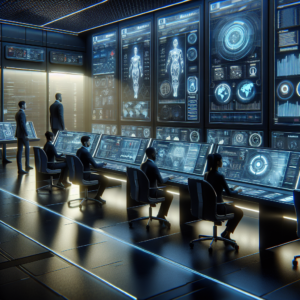Mark Zuckerberg Says AI Could Soon Replace Midlevel Engineers at Meta
In a recent statement, Meta CEO Mark Zuckerberg has shared groundbreaking insights on the future of artificial intelligence (AI) within the tech giant. He posits that AI could soon be capable of performing the tasks currently handled by midlevel engineers. This revelation opens up a myriad of discussions regarding the role of AI in modern workplaces, particularly in technology-driven companies like Meta.
The Rise of AI in the Workplace
As technology evolves, so does the capacity for AI to take over complex tasks that were once reserved for human employees. Zuckerberg’s announcement suggests that Meta is embracing this change and is ready to integrate AI more deeply into its operations. This move is not only a response to the growing capabilities of AI but also a strategic decision to enhance efficiency, reduce costs, and possibly reshape the employment landscape within the tech industry.
Understanding Midlevel Engineering Roles
Midlevel engineers typically have a wealth of experience and are proficient in various technical skills. They often serve as a bridge between entry-level employees and senior management, taking on responsibilities such as:
– Project management
– Code review
– Mentoring junior engineers
– Collaborating with cross-functional teams
The idea that AI could one day fulfill these roles raises questions about the future of work, the nature of engineering tasks, and the skills that will be most valuable in the coming years.
The Current AI Landscape
AI technology has made significant strides over the past few years. Machine learning models are now capable of performing tasks such as:
– Automating repetitive processes
– Analyzing vast datasets
– Generating code
– Assisting in troubleshooting and debugging
These advancements serve as a testament to AI’s growing potential in the tech sector. However, there are still limitations. For instance, while AI can analyze data and automate certain tasks, it lacks the emotional intelligence and creativity needed to navigate complex interpersonal dynamics within a team setting.
Potential Implications of AI in Engineering
Should AI indeed take over certain responsibilities typically held by midlevel engineers, the implications could be profound:
– Workforce Reduction: The most immediate concern is the potential for job displacement. With AI handling specific tasks, the demand for midlevel engineers may decrease, leading to layoffs or a shift in hiring practices.
– Skill Evolution: As AI takes on more technical tasks, human engineers may need to evolve their skill sets to focus on areas where human insight is crucial, such as strategy, innovation, and leadership.
– Cost Efficiency: For Meta and similar companies, using AI could significantly reduce operational costs. This might allow for greater investment in research and development, paving the way for new innovations.
The Future of Engineering Jobs
While the notion of AI replacing midlevel engineers is alarming for many, it is important to consider the potential for job transformation rather than outright replacement. As routine tasks are automated, engineers may have the opportunity to engage in more creative and strategic roles that leverage their unique human skills.
In a future where AI is integrated into the engineering workflow, the following job roles may come to prominence:
– AI Trainers: Engineers will be needed to train and refine AI systems, ensuring they align with human intentions and corporate goals.
– Data Interpreters: As AI generates insights, engineers who can interpret and translate these findings into actionable strategies will become invaluable.
– Innovation Leaders: With more time to focus on higher-level tasks, engineers could lead innovation efforts, driving Meta and other companies towards new technological breakthroughs.
Ethical Considerations
As with any significant technological advancement, the integration of AI into engineering roles raises ethical concerns. Companies must consider:
– Bias in AI: If AI systems are trained on biased data, they may perpetuate existing inequalities in the workplace.
– Transparency: It is essential for companies to maintain transparency about how AI constitutes decision-making processes, especially when it affects hiring, promotions, and work assignments.
– Employee Well-Being: Organizations need to be vigilant in understanding how AI affects employee morale and job satisfaction. Ongoing dialogue about these changes is crucial for a smooth transition.
Conclusion: A New Era of Engineering
Mark Zuckerberg’s assertion that AI could soon do the work of midlevel engineers marks a significant turning point in the tech industry. As AI continues to evolve, so too will the roles and responsibilities of human engineers. Rather than viewing AI as a threat, the industry should embrace it as an opportunity to reshape the workforce, promote innovation, and enhance productivity.
The future of work will undoubtedly be influenced by AI, but it is essential to navigate this transition thoughtfully. By focusing on collaboration between humans and machines, companies like Meta can create an environment where both can thrive. As we move into this new era of engineering, understanding and adapting to these changes will be critical for professionals aiming to remain relevant in a rapidly evolving landscape.
As AI continues to advance, it’s an exciting time for the tech industry, offering possibilities beyond what we can currently imagine. The journey ahead may be challenging, but with careful consideration and planning, the integration of AI could lead to a more innovative and fulfilling work environment for all.



